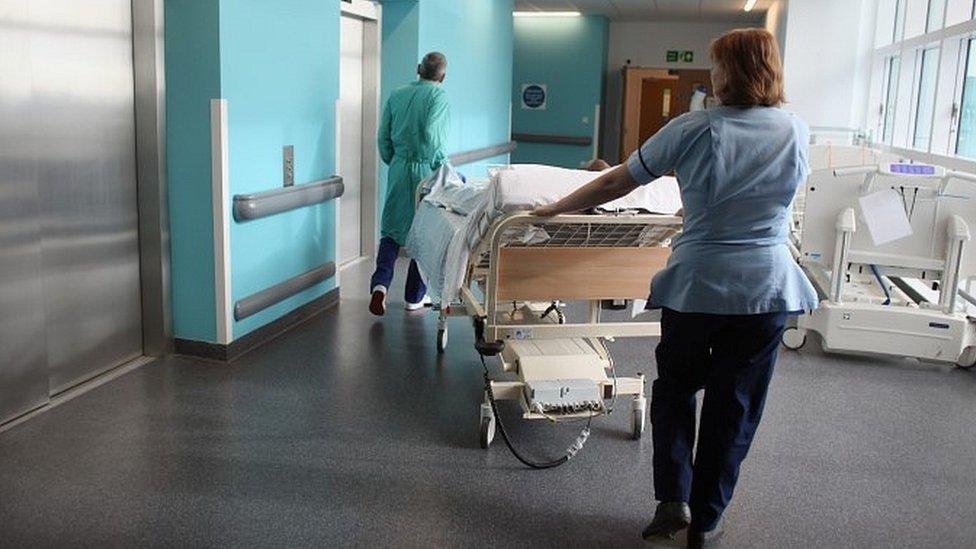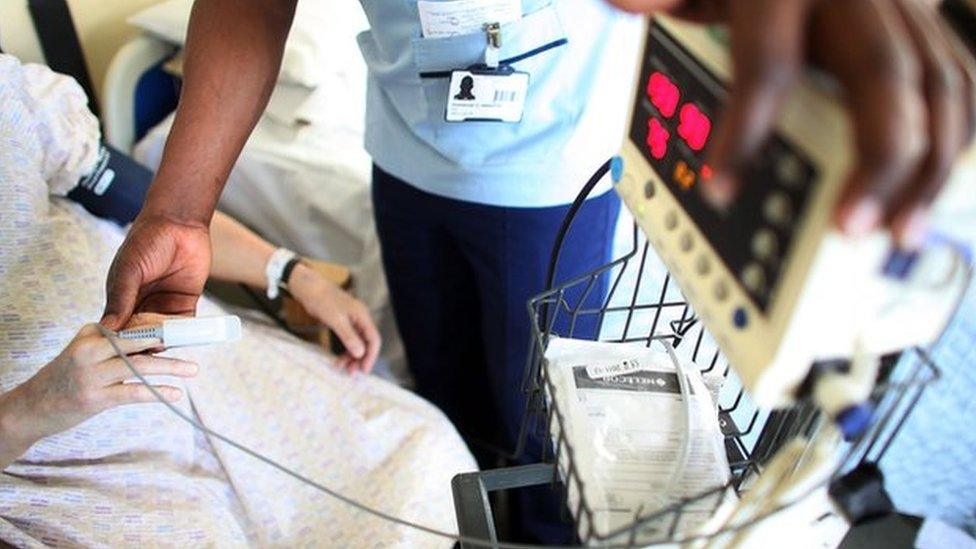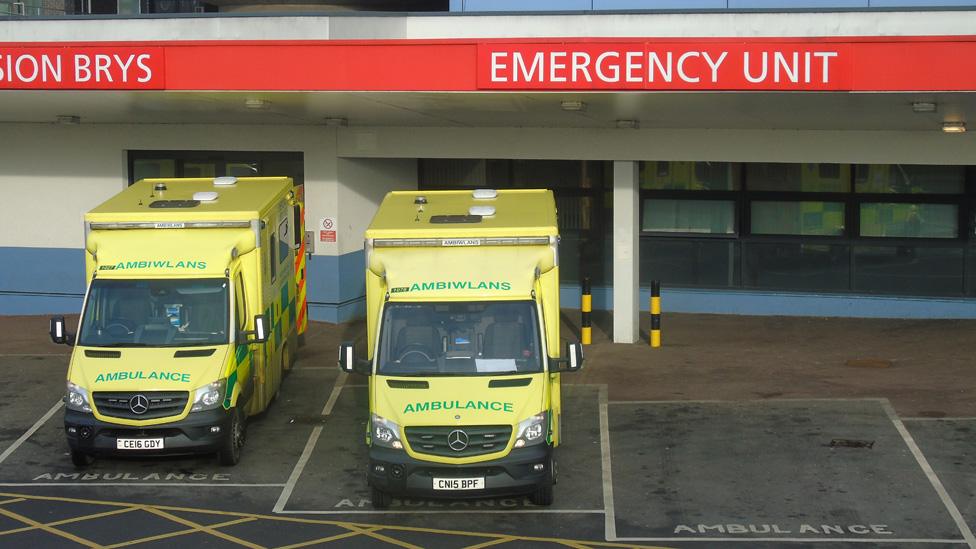How is your health board doing financially?
- Published

How is each health board doing in terms of their budgets in Wales?
As they each reach the end of the financial year, an analysis of their own reports, and studies done by bodies such as the Wales Audit Office, reveal the pressures - even for those breaking even.
What is the picture?
"Significant financial challenges" although the budget deficit has reduced on the previous year.
It has failed to meet ambitious savings targets while facing more unplanned rises in costs and the Wales Audit Office has now recommended it sets "realistic" targets.
The health board said it was continuing to work with staff to make appropriate savings and to "redesign the way we deliver services to ensure they are of a high quality and within the resources we have available"
Pressure points:
Referral to treatment times - the Welsh Government could take back £5m it gave the health board to improve the times patients wait for hospital treatment, if these do not improve
A £60m estates backlog and £75m of equipment having reached the end of its economic life. It does not have an asset management strategy to help it prioritise within its very limited resources

What is the picture?
It is at a break-even point and was even at a £0.6m surplus at the end of February, although winter pressures may have an effect. Its three year recurring financial position shows a surplus.
What are the pressure points?
The health board is not immune from staffing issues. Expenditure for nursing, bank and agency staff increased in February. It remains "significant", specifically in relation to covering vacancies. Agency and locum spending totalled £36.6m in the first 11 months of 2017/18, up from £32.9m
The health board says, in terms of longer term sustainability, its strategy aims to "rebalance" hospital and out-of-hospital care to provide more care closer to home, where it can, and make better use of its workforce and financial resources

What is the picture?
Betsi has had long-term problems and is still in special measures. Auditors point to "significant financial challenges" - and say it needs to take a "transformational approach" to make the savings it needs to reduce the growing cumulative deficit.
The deficit in a three-year period has risen from £75.5m from 2014-17 to £85.3m between 2015-18.
Betsi has still managed to make £192m savings in the five years to 2017 but is still too reliant on short-term savings on an annual cycle, rather than taking a bigger picture approach.
The health board says it needs to make £45m of savings for the coming financial year and similar savings over the following three years.
It is looking at making better use of technology to reduce the amount of staff travel across a large geographical area. Small changes such as text reminders for appointments have helped bring significant savings, it says.
What are the pressure points?
"Significant issues" relating to a reliance on temporary staff and recruitment challenges, especially with specialists. Spending on agency staff peaked at £45m in 2016-17 but started to reduce this year. The health board says it has introduced an "intensive recruitment drive" and it could save £1m a month if it managed to fill all its vacant posts
A £40.1m maintenance backlog with its ageing buildings

You might also be interested in these stories:

What is the picture?
The health board appears to be getting to grips with financial issues, with the deficit now less than anticipated, and it is now expected that all areas will deliver within forecasted budgets.
Pay budgets continue to show "sound performance" - with an under spend in the year to date of £2.3m
Where are the pressure points?
A combined £16.3m overspend on agency, bank staff and overtime is greater than the under spend against staff vacancies, leading to an overall overspend on its nursing budgets

What is the picture?
There is a break-even position for this year but forecasts a recurring deficit going into 2018-19 of £4m. The health board says this is the starting point for its medium-term financial plan for the the next three years, aiming to break even again in a year's time.
Where are the pressure points?
Workforce pressures remain a challenge, with comparatively high spends on medical agency staffing
Non-recurring savings are increasing

What is the picture?
Hywel Dda's financial problems have been well documented recently and it is also poised to start a consultation on major changes to its hospital services. There remains a "significant challenge" to make inroads into its accumulated deficit.
What are the pressure points?
It has recruitment issues, resulting in the need for costly temporary medical staff. Significant challenges "still remain in key specialties" where finding alternatives to existing premium rate doctors is "extremely difficult". The board has negotiated a new contract for the supply of agency doctors which started last November
Planned care - there is a £8.2m overspend to date - due to pay, clinical services and supply

What is the picture?
Powys patients are treated in hospitals in neighbouring health boards, including over the border in England. The health board broke even in its three-year cycle.
What are the pressure points?
It delivered most of its £3.3m identified savings schemes and is "broadly on track" to deliver planned savings
It kept "a watchful eye" on bank and agency staffing costs, despite having around 30 nursing vacancies
- Published28 March 2018

- Published22 March 2018

- Published17 March 2018

- Published5 January 2018

- Published31 January 2018
